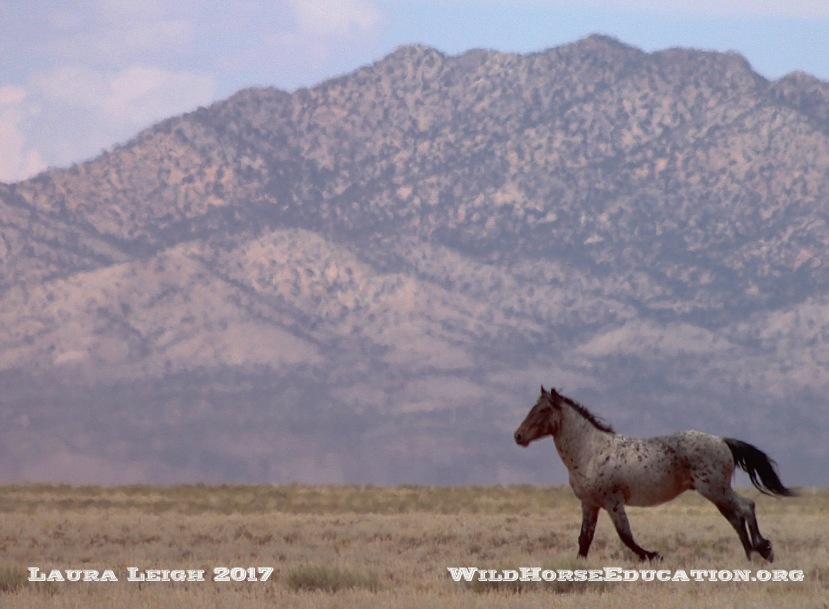
Every year we cover over a vast territory gaining ground data. We use that information to fight to protect and preserve our wild horses
Wild Horse Education (WHE) is a tiny organization with a strong track record. Many utilize WHE as a credible source of information, protocol advice and how to engage the legal process. Our litigation record is impressive. Our field data has been used in process to halt inappropriate actions before they begin.
To learn more about our impact and how our litigation has changed policy, visit https://wildhorseeducation.org/our-impact/
Below is a brief summary of some of our accomplishments, the list is incomplete. These are not things we simply wrote about, these are things we have done. In addition we possess the largest library of first hand documentation of wild horse roundup removals in the world.
WHE Resume:
Treatment of wild horses
The only organization to take issues of inhumane treatment into a court room. We have won multiple rulings against inhumane treatment at roundups. From 1975-2015 the Bureau of Land Management (BLM) removed wild horses from the range without a humane handling policy. Our work was instrumental in creating the first humane handling policy in history. Below are some examples:
The first court orders in history against treatment of wild horses during capture.
In Triple B, gained a Temporary Restraining Order (TRO) against inappropriate treatment at a roundup. The same case won a second ruling, a Preliminary Injunction, against conduct.
This case led to BLM creating a document called the “Triple B review” where, for the first time, they admitted the alleged conduct actually occurred.
At a biter cold roundup in Nevada WHE won another case against conduct at Owyhee. This one brought with it very specific language from a federal Judge Judge issues TRO
WHE is the only organization to provide documentation and litigate conduct issues throughout the history of the federal program. Gaining a humane policy was one of our first priorities.
We engaged process at multiple levels utilizing the documentation we gained from observing wild horse captures. WHE has documented more wild horse captures than any organization and has the worlds largest video and photographic library of captures over the last decade (larger than the federal government because we began documenting before they did).
We created recommendations. We did not get all we were looking for, but in 2015 the BLM includes an actual policy for humane handling in all roundup contracts. (
CAWP-IM-2015-151)
Access to document handling of wild horses
The right to access, document and report on wild horse management has been a key fight for WHE. Our founder comes from a media background and began to fight for First Amendment Freedoms in the wild horse world in 2010.
A 4.5 year fight to access and document wild horses resulted in a major victory in the Ninth Circuit. That ruling is cited in civil rights cases nationwide (
Ninth Circuit Decision) and a settlement conference was ordered by the courts in 2013. In 2014 a “meaningful access” instruction memorandum was created and inserted into roundup contracts and the BLM resumed tours of the “closed door” facility in Nevada known as Indian Lakes or Broken Arrow).
Today BLM gives daily updates on it’s social media and website, something they did not do when we began to provide those to the public.
Unjustified action
Our work has stopped, or modified, agency actions to remove wild horses. We have stopped removals that had no scientific or practical justification. We have engaged to modify plans that were too extreme to meet the parameters outlined by agency action.
Large scale claims
WHE was the first organization on file against the Nevada Association of Counties (NACO) and the Farm Bureau. This suit was to remove, and even destroy, wild horses across the state of Nevada.
https://wildhorseeducation.org/?s=nacoEngaged, engaged and engaged
Fish Creek is an example where WHE engaged for years to create changes in management. Counties and ranchers pushed back. WHE crafted litigation and filed as intervenors. Wild horses were released back to the range.
https://wildhorseeducation.org/?s=fish+creekBut it has not stopped there. We are up against a massive political push in the area to resume horse slaughter and the take over of public land. This is an area of intensity and we are still actively engaged. The largest fertility control program in the nation remains in limbo.
Livestock grazing
More than 1700 wild horses sold to killbuyer with ties to former Secretary of the Interior
In 2012 we met Pulitzer prize nominee Dave Philipps at a roundup and had a long chat. That chat turned into an investigation, WHE assisted, that uncovered that BLM was indeed selling large numbers of wild horses to slaughter buyers.
https://wildhorseeducation.org/slaughter-investigation/This is our “short resume.” WHE give you more miles to the gallon. We document and engage ranges in 4 states and cover 50-100 thousand miles, or more, every single year. Range, table to courtroom; information and action, the only way to create change.

You must be logged in to post a comment.